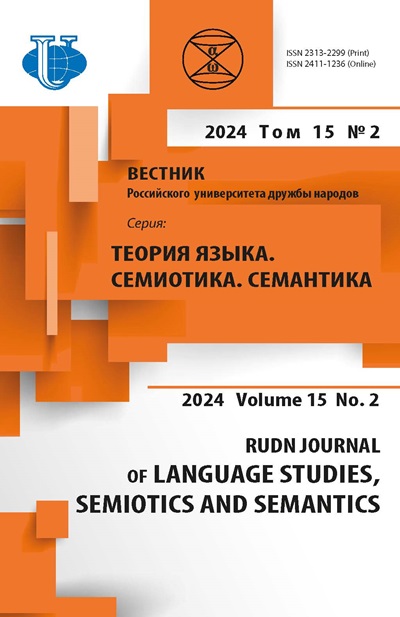Выпуск
Название
Авторы
|
Юйхань -., Лазарева О.В., Баров С.А., Веред В.Т. |
|
Жикулина К.П., Перфильева Н.В., Ли М. |
|
Чжан Л., Кормазина О.П. |
|
Чулкина Н.Л., Филиппович Ю.Н., Александрова О.И., Новоспасская Н.В., Речинский В.А. |
|
Сунь Ю., Рыбаков М.А., Лысякова М.В. |
|
Токпаева Л.С., Кузембаева Г.А., Спулбер Д.П. |
|
Кузембаева Г.А., Майгельдиева Ж.М., Майдангалиева Ж.А. |
|
Бруффартс Н.С., Москвичева С.А. |
|
Цзинь Л., Лазарева О.В., Лазарева О.С. |
|
Стародубец С.Н., Белугина О.В., Колегова О.Ю. |
|
Бочина Т.Г., Димитриева О.А. |
|
Сафаралиева Л.А., Перфильева Н.В. |
|
Селиверстова Е.И., Волкова Л.Б., Ма С. |
|
Баянбаева А.А., Демченко А.С., Барабаш В.В. |
|
Недопекина Е.М., Ха Ц. |
|
Чичина М.О. |
|
Параккини Л., Трофимова Г.Н. |
|
Ганапольская Е.В. |
|
Новоспасская Н.В., Ян С., Михайленко А.Ю. |
|
Шапошникова И.В. |
|
Бахтикиреева У.М. |
|
Стрельчук Е.Н., Лепкова А.С. |
|
Нелюбова Н.Ю., Ломакина О.В., Мирзаева С.В. |
|
Мельничук О.А. |
|
Орлова Т.Г. |
|
Иванова М.В. |
|
Сулейменова Э.Д., Аканова Д., Аймагамбетова М.М. |
|
Артюхова Н.С., Сайкина О.С., Соловьева А.А. |
|
Ненарокова М.Р. |
|
Бурибаева М.А. |
|
Персиянова С.Г., Ростова Е.Г. |
|
Трубникова В.Ю. |
|
Оглезнева Е.А., Пустовалов О.В. |
|
Алонцева Н.В., Ермошин Ю.А. |
|
У П. |
|
Абдуллаева Ш.Н. |
|
Боброва Е.Д. |
|
Александрова О.И. |
|
Мехраби Кесарь -. |
|
Джусупов М. |
|
Орлова Т.Г. |
|
Колышева О.Н. |
|
Каскова М.Е., Устинова О.В., Большакова Е.К. |
|
Киров Е.Ф. |
|
Москвичева С.А., Ли С. |
|
Бараш О.Я. |
|
Джусупов М. |
|
Байрамова Л.К., Иванова М.В. |
|
Моради Марьям Дарьюш -. |
|
Гейченко С.А. |
|
Нелюбова Н.Ю., Дугалич Н.М., Ершов В.И. |
|
Дроздова Диес Т. |
|
Орлова Т.Г. |
|
Валентинова О.И., Рыбаков М.А. |
|
Алонцева Н.В., Ермошин Ю.А. |
|
Згировская О.Г. |
|
Тихонова Е.Н. |
|
Брыгина А.В. |
|
Маркова Е.А. |
|
Омельченко В.В. |
|
Шаклеин В.М., Скомаровская А.А. |
|
Шапошникова И.В. |
|
Пименова М.В., Ляньлянь У. |
|
Дремов А.Ф. |
|
Тимофеев С.Е. |
|
Сунь Шуян -. |
|
Монфорте Дюпре Р.В., Чеснокова О.С. |
|
Матейкович Е.В. |
|
Перфильева Н.В. |
|
Недопекина Е.М. |
|
Бондарева В.В. |
|
Григорян А.А., Стрельчук Е.Н. |
|
Перфильева Н.В., Галанкина И.И. |
|
Киосе М.И. |
|
Дилдабекова А.К. |
|
Ли С. |
|
Джусупов М. |
|
Бурибаева М.А. |
|
Самойлова С.П. |
|
Авдеев О.К. |
|
Аль-Фоади Р.А., Зарытовская В.Н., Аль-Рознамачи Р.Х. |
|
Чулкина Н.Л., Денисенко В.Н. |
|
Коренева Ю.В. |
|
Нагзибекова М.Б., Хасанова Ш.Р. |
|
Маркова Е.А., Тодорова И.Д. |
|
Чернышова Е.Б. |
|
Лутеро Т. |
|
Али Мадаени Аввал -., Мариям Моради -. |
|
Туманова А.Б. |
|
Ли Чуньжун -. |
|
Егоров В.Г. |
|
Лацкова М. |
|
Хосейни А.А., Кахнамуи Т.Х. |
|
Новоспасская Н.В., Раадранириана А.М., Лазарева О.В. |
|
Балясникова О.В., Черкасова Г.А., Степанова А.А., Уфимцева Н.В. |
|
Медведева Д.И., Фаттахова А.Ж. |
|
Недосугова А.Б. |
|
Паизбекова А.Д. |
|
Николич М., Новоспасская Н.В. |
|
Новиков А.Л., Новикова И.А. |









